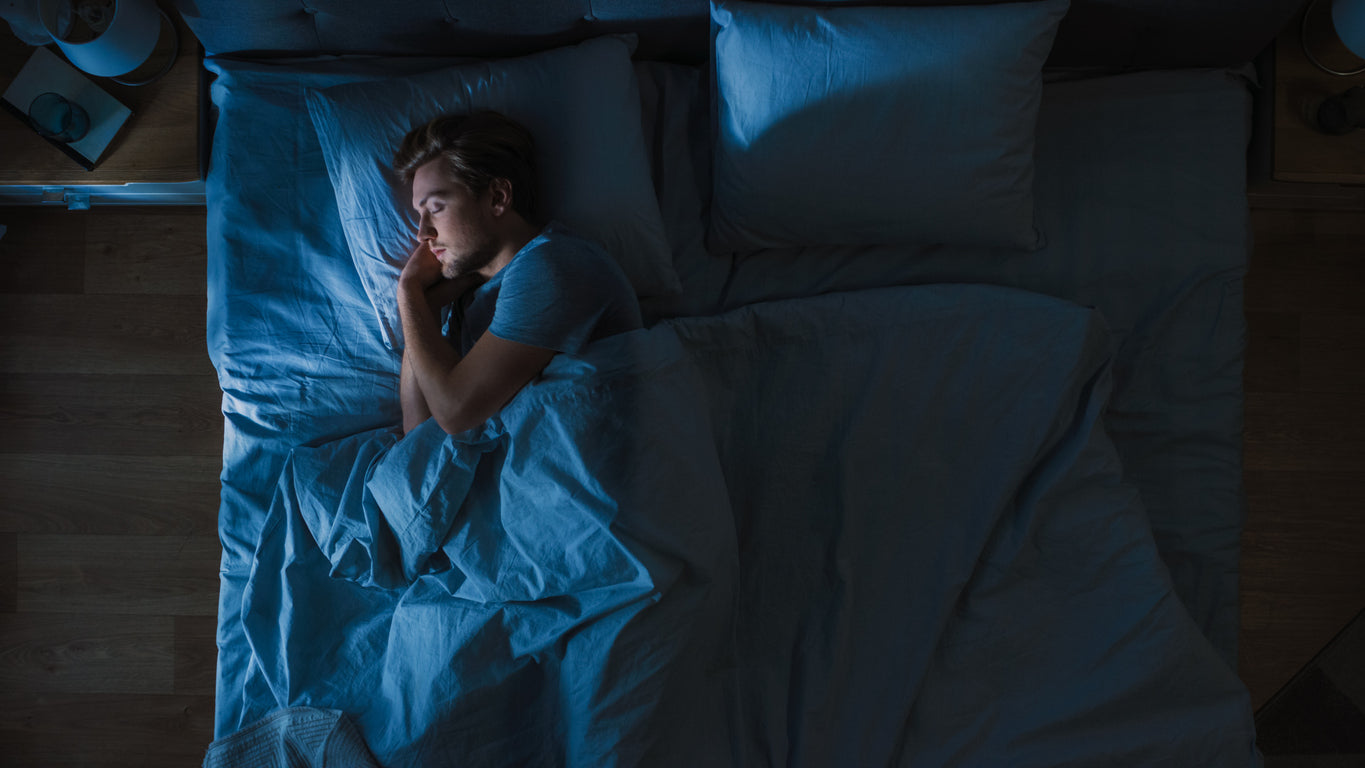How Are Screen Time and Digital Technology Affecting Your Sleep?

How Are Screen Time and Digital Technology Affecting Your Sleep?
It's no surprise that many of us spend a significant amount of time on our phones, with the average Brit clocking in just under five hours a day. Whether it's checking emails, texting, scrolling through social media, or watching videos, these screen activities often extend into our bedtime routine. But could this habit be detrimental to our sleep cycle? It certainly seems likely.
And it's not just phones that captivate us. Our laptops, tablets, e-readers, and televisions also compete for our attention before we call it a night. Research on-screen use before bed reveals that it negatively affects our ability to fall asleep, stay asleep, and wake up feeling refreshed, ultimately compromising our sleep hygiene. Read on to find out the reasons behind this, and explore practical advice to overcome the insomnia caused by excessive screen time.
 It Keeps Your Mind Engaged
It Keeps Your Mind Engaged
Using screens before bed stimulates our brains when we should be winding down. Falling asleep isn't a quick process; it requires a gradual calming of the mind and body. However, engaging with loud, attention-grabbing videos or social media interactions wakes up and stimulates the brain, which is the last thing we want. Even a quick glance at messages or a scroll through alarming news can keep our brains active long after we put the phone down.
The same goes for watching television or playing video games—these activities keep our brains in an alert state, making it harder to switch off.
Blue Light and The Circadian Rhythm
Screens emit blue light, which interferes with the production of melatonin, a hormone that helps prepare the body for sleep. Melatonin plays a crucial role in our circadian rhythm, our internal sleep-wake cycle. When our circadian rhythm is disrupted, insomnia can arise. To ensure a good night's sleep, it's advisable to minimise screen use before bed, as these devices emit blue light that suppresses the production of melatonin.
When To Put The Screens Away...
Determining the optimal time to stop using screens before bed isn't set in stone. Various experts offer different recommendations. The NHS suggests switching off screens at least an hour before bedtime, while other researchers suggest a longer window, if possible.
 Screen Time Alternatives
Screen Time Alternatives
If you find it challenging to break away from screens and struggle with sleep issues, don't panic. Transforming your bedroom into a screen-free zone doesn't mean all hope is lost.
There Are Plenty of Alternative Activities You Can Engage In To Wind Down Before Sleep.
Consider reading a book or magazine, writing or journaling, practising meditation, listening to soothing music, a podcast, or an audiobook, solving puzzles, spending quality time with loved ones or pets, making phone calls (without video), or indulging in a relaxing shower or bath.
If completely eliminating screens feel like a daunting task, there are some alternatives to consider. Special amber glasses have been shown to filter out blue light and mitigate its effects. Alternatively, you can dim the screen to the lowest visible setting.
Sleep Easy with These Supplements
Two supplements that are considered to be particularly helpful for regulating sleep are magnesium and Ashwagandha.
Magnesium is a mineral that plays a crucial role in the body's relaxation response. It can help calm the nervous system, regulate the heart rhythm, and promote muscle relaxation, all of which can contribute to better sleep.


And Ashwagandha is an adaptogenic herb that has been used for centuries in Ayurvedic medicine to promote relaxation and reduce stress. It's believed to work by regulating the body's stress response and promoting the production of calming neurotransmitters, such as GABA. Interestingly, Ashwagandha has also been shown in studies to improve sleep quality and reduce anxiety in people with insomnia.

The Bottom Line
Remember, ensuring quality sleep is not only vital for your overall well-being, but also plays a significant role in managing your blood pressure. Studies have shown that inadequate sleep and excessive screen time before bed can have a negative impact on blood pressure levels. By prioritising restful sleep and making a conscious effort to limit screen use before bedtime, you can take proactive steps toward maintaining healthy blood pressure. So, it's time to break free from the screen addiction and embrace healthier bedtime habits, not just for optimal sleep, but also to support your cardiovascular health.

Riya Lakhani ANutr is a registered nutritionist and health writer with a special interest in plant-based nutrition. She has completed a Bachelor’s and Master’s degree in Human Nutrition, and has developed a passion for writing about all things plant-based.


